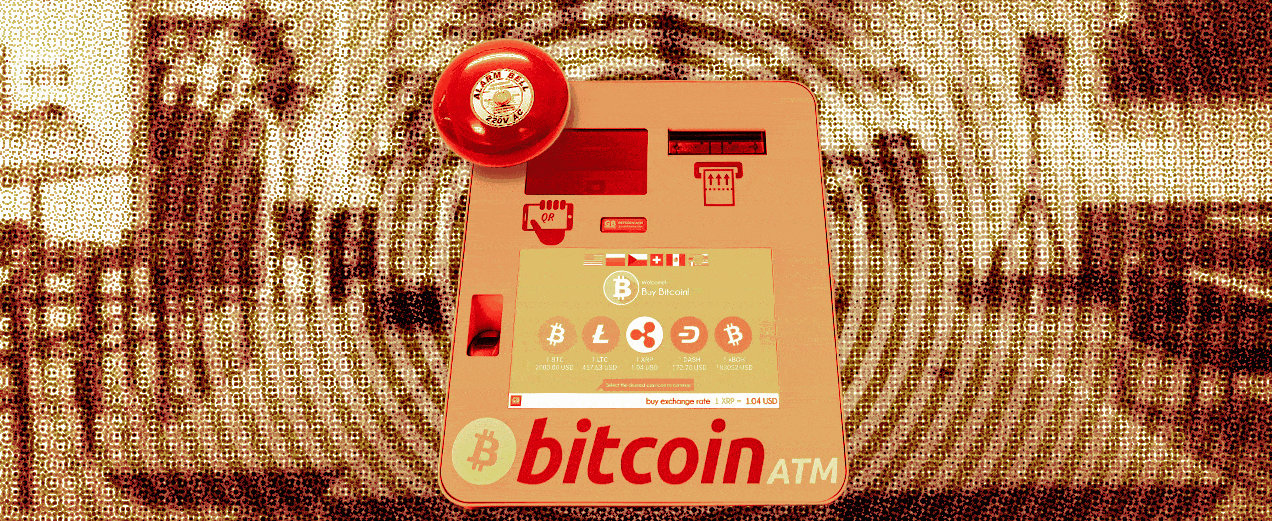Digital Assets
Financial crime, fraud alarm bells ring steadily louder on crypto ATMs
• 0 minute read
August 22, 2025

Regulators and law enforcement worldwide have increased their warnings about the financial crime and fraud risks presented by cryptocurrency automated teller machines (ATM). Agencies in Australia and the United States have both highlighted that crypto ATMs are increasingly being used in frauds targeting the elderly.
In June, the Australian Transaction Reports and Analysis Centre (AUSTRAC), the government agency responsible for anti-financial crime activities, reported its crypto ATM task force had uncovered “worrying trends” that showed these services were being used for scams and fraudulent transactions.
Australians in the 60 to 70 age group were among the most prolific users of crypto ATMs, AUSTRAC found. Its chief executive, Brendan Thomas, said: “It is a huge concern that people in this demographic are over-represented as customers using cash to purchase cryptocurrency and, as evidence suggests, that a large number of 60 to 70-year-old users are victims of scam activity.”
In 2024, the US Federal Bureau of Investigation’s (FBI) internet crime unit received 10,956 complaints reporting the use of convertible virtual currency (CVC) kiosks, with reported victim losses of around $246.7 million. That is a 99% increase in the number of complaints and a 31% increase in reported victim losses from 2023, according to a US Department of the Treasury Financial Crimes Enforcement Network (FinCEN) warning in August on crypto ATM financial crime risks.
Also in July, North Carolinaʼs attorney general Jeff Jackson and secretary of state Elaine Marshall launched a campaign to prevent bitcoin and crypto ATM scams. “Scammers nearly always seek to form emotional or romantic relationships with their targets. They will often target older people who are more vulnerable and less likely to report losses to authorities,” North Carolinian authorities said in a statement.
The North American Securities Administrators Association (NASAA) has likewise warned on crypto ATM scams.
Popular with drug traffickers, TCOs
In the US, crypto ATMs should be registered with FinCEN as money service businesses (MSBs). However, the rapid growth in the number of CVC kiosks in the country has coincided with substantial rates of non-compliance with anti-money laundering/countering the financing of terrorism (AML/CFT) rules by crypto ATMs operators.
For example, a 2021 report by the New Jersey State Commission of Investigation found more than a third of the companies operating CVC kiosks in the state had not registered with FinCEN as an MSB.
FinCEN also found, through analysis of Bank Secrecy Act (BSA) information, that crypto ATMs are increasingly popular with drug traffickers and transnational criminal organisations (TCOs), such as Mexican crime syndicate Cártel Jalisco Nueva Generación (CJNG).
According to FinCEN, TCOs can launder drug money through crypto ATMs as an alternative to bulk cash smuggling, because they enable rapid international funds transfers.
UK, Germany
There are no crypto ATMs operating legally in the UK, because no operator has successfully registered with the Financial Conduct Authority (FCA) under the Money Laundering Regulations (MLRs), and the regulator has worked with its national law enforcement partners to seize illicit crypto ATMs.
The FCA prosecuted Olumide Osunkoya who in February was sentenced to four years in prison for operating crypto ATMs at 28 locations after the regulator refused to register his business under the MLRs.
In July, the FCA seized another seven crypto ATMs, after having implied there were no crypto ATMs operating in the UK. “The number of crypto ATMs advertised on CoinATMRadar in the UK has fallen from more than 80 in 2022 to nil in 2024,” it said in a press release announcing Osunkoya’s sentencing.
The FCA did not respond to a request for clarification on its comments about CoinATMRadar showing ‘nil’ crypto ATMs and seizing another seven just last month.
Last summer, German financial regulator BaFin, in coordination with the countryʼs Federal Criminal Police Office, seized 13 crypto ATMs operating illegally. BaFin noted the machines’ attractiveness to criminals for money laundering, and said that crypto ATM operators should perform Know Your Customer (KYC) checks, either at onboarding or when they exchange amounts over 1,000 euros.